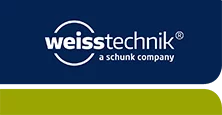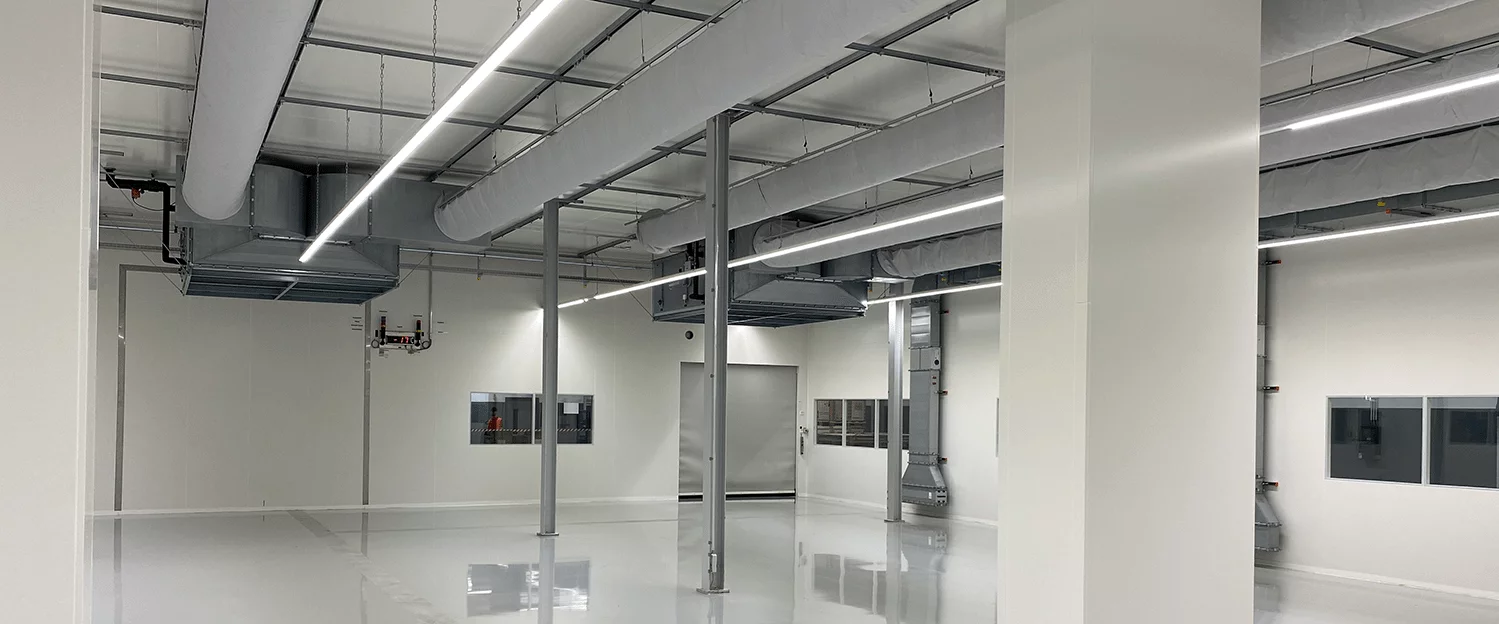Despite stagnating sales figures, e-cars remain a central key to the transport revolution. However, the lithium-ion batteries with liquid electrolytes used for this purpose still have room for improvement in terms of range, charging time, safety, and sustainability. Solid-state batteries are therefore considered a promising alternative. Weiss Technik promotes their development with customised dry room technology and innovative safety concepts.
Global race for the best solution
Stable and reliable conditions in the manufacturing process are crucial to driving the progress of solid-state batteries (SSB). Weiss Technik supports research institutions and companies with targeted and holistic concepts in the areas of dehumidification, climate control, and safety management. The Reiskirchen-based specialist for environmental simulation is thus contributing to the development, pilot production, and subsequent series production of SSB.
Pioneering chemical work
Solid-state batteries or all-solid-state batteries (ASSB) are a further development of previous lithium-ion batteries with solid instead of liquid electrolytes. The performance of various solid electrolyte classes is currently being researched for this purpose. The focus is on oxide-, sulphide-, polymer-, and halide-based solid electrolytes as well as hybrid solutions derived from them. The battery chemistry must be redeveloped and all components precisely harmonised. New anode active materials (AAM) such as lithium metal and silicon as well as new cathode active materials (CAM) are being used.
Get the most out of advantages
Solid-state batteries promise a considerably higher energy density and enable up to 30% more range with a more compact design. Depending on the cell chemistry, SSB can considerably reduce charging times, increase the number of charging cycles, and reduce the risk of fire resulting from overcharging or accidents because they do not contain any flammable liquids. In addition, SSB can be produced much more sustainably. They therefore have great potential for the future – provided that the manufacture of components and cell production can be scaled up and the production costs, which are currently seven to eight times higher, can be reduced to a competitive level.
Game changer beyond e-mobility
Sales Engineer Bahattin Celik and Project Manager Stjepan Jurisic from Weiss Technik also recognise the great potential of SSB. “E-mobility is currently only the driver of innovation. Solid-state batteries are highly versatile and can be used to solve many of the problems of conventional lithium-ion batteries”, explains Celik. Their use is conceivable almost everywhere – in electric vehicles as well as in machines, drones, and household appliances. The Weiss technology experts expect that SSB variants with specific cell chemistry will prove successful for different requirements.
Ensuring safety in research and production
Strictly controlled climatic conditions and appropriate safety concepts are also required in dry rooms when working with SSB. Compared with the production of batteries with liquid electrolytes, the requirements are considerably more demanding. “Fluctuations in the climatic conditions during production, particularly in terms of humidity, can affect the quality of the batteries and have a negative impact on their performance and shelf life. In the worst case, it can be life-threatening”, explains Jurisic. Reliable and efficient air conditioning technology is therefore crucial for a constant production of the highest quality, whereby the main focus is on dehumidification.
Targeted drying through adsorption
A comprehensive dry room system with extremely dry air is a prerequisite for the reliable production of SSB cells. Otherwise, the materials used may react with water and release highly flammable gases such as hydrofluoric acid (HF) and hydrogen sulphide (H₂S). To prevent this reaction, extremely low dew points of −50 to −60°C are required. “This is air drying that goes to the limits of what is physically possible”, explains Celik. Weiss Technik uses adsorption dryers to achieve the necessary level of dryness. First, several silicate-covered rotors absorb the humidity. Some of the dehumidified air is then reheated and passed through the rotor as regeneration air, which removes the moisture and discharges it to the outside. The process can be precisely controlled so that the humidity can be kept at a consistently low level.
Customised energy efficiency
Adsorption drying is an energy-intensive process. “We nevertheless find ways to minimise the carbon footprint of the systems”, says Jurisic. Weiss Technik use all alternative energy sources available to optimise energy efficiency. These can be wind, hydropower, or photovoltaic systems as well as high-temperature heat pumps and residual heat or hot steam from production companies. In addition, the energy requirement can be further reduced with special measures for the treatment of outside and regeneration air.
Develop targeted security concepts
Dry air forms the basis for reliable battery cell research and production. In addition, comprehensive safety measures are required in the hermetically sealed dry room in order to protect people, equipment, and material in the event of an accident. Weiss Technik carries out risk assessments together with the customer and develops customised safety concepts. Possible safety measures include H2S sensors with audible and visual alarms, systems for interrupting the release of H2S, and methods for rapid removal of the gas. Weiss Technik also supports employee training in dealing with H2S and provides information on accidents. In view of the risk of explosion of H2S under certain conditions, Weiss Technik also advises on the implementation of explosion protection measures according to ATEX directives.
Weiss Technik: advantage through experience
“The development of safety concepts for solid-state batteries is a real challenge”, emphasises Celik. “Every customer has individual requirements for which new scenarios have to be worked out”. Through numerous projects for renowned German car manufacturers and research institutions Weiss Technik has extensive experience in developing dry room systems for the production of battery cells. According to Jurisic, it is always crucial to take a holistic view of the project, taking into account all aspects of protection and efficiency. “Safety always has top priority. Based on this, we develop intelligent solutions such as the combination of systems. This also reduces costs”.
Reprint free of charge. Please cite Weiss Technik GmbH as the source.

